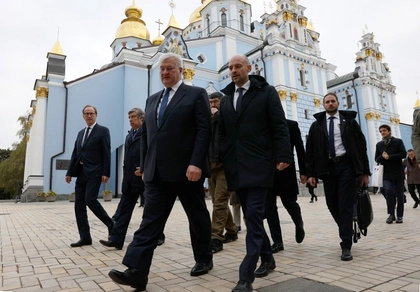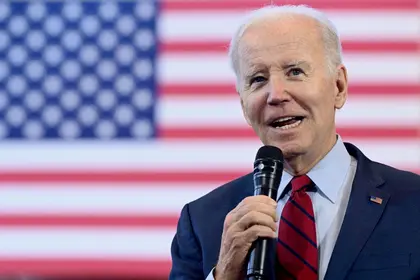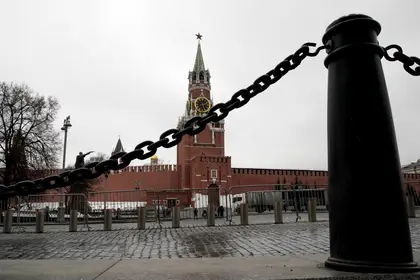CHICAGO – As the U.S. presidential election campaign looms, President Joe Biden delivered a yearly State of the Union address on Feb. 7 to the bicameral national legislature, which pivoted toward foreign policy and Ukraine about one hour into the speech.
If his previous address last year emphasized Ukraine, which was six days into heroically defending an all-out onslaught by Russia that began on Feb. 24, this year’s speech in Congress stated that the invasion was “a test for America.”
JOIN US ON TELEGRAM
Follow our coverage of the war on the @Kyivpost_official.
Biden said that Kremlin autocrat Vladimir “Putin’s invasion [last year] has been a test for the ages. A test for America. A test for the world… We will stand with you as long as it takes,” while gesturing toward Ukrainian Ambassador Oksana Markarova, who was in attendance for the second consecutive year.
The U.S. has led in monetary terms by providing more than $110 billion in military and economic assistance to the war-battered country. The aid has allowed Kyiv to stave off what could have been an operation to overthrow the pro-democratic government of Ukrainian President Volodymyr Zelenskyy.
The shift away from Ukraine was attributed to a transition mode as the quadrennial 2024 presidential campaign approaches in the spring.
“I was surprised by the so strong emphasis on domestic topics and lack of foreign policy and Ukraine,” said Maria Zolkina, head of regional security and conflict studies at the Kyiv-based Democratic Initiatives Foundation. “It’s a bad signal… but the [presidential] elections campaign has started.”

Russian Victory Would Bring 'Chaos': French FM
Tweeting live during the speech Daniel Fried, former U.S. Ambassador to Poland and current fellow at the Washington-based Atlantic Council policy center, said the speech had “laid out the stakes in Ukraine well… Biden’s statement of the case was needed and he delivered.”
Biden’s address also emphasized the combined effect the North Atlantic Treaty Alliance (NATO) has had in aiding Ukraine as its financial resources and war materiel are being depleted.
Russia had been preparing for war for years and re-invaded its former colony with stockpiles of artillery and armor to sustain a drawn out conflict. Over time, Kyiv has grown reliant on materiel from the West and about 20 percent of Ukraine’s territory remains occupied.
“We led. We united NATO and built a global coalition. We stood against Putin’s aggression. We stood with the Ukrainian people,” Biden said.
Much needed battle tanks for Ukraine’s military are latest outcome of the Western coalition’s efforts to help Kyiv withstand the invasion. Britain has pledged its Challengers, Germany – Leopard 1 and 2 tanks, and the U.S. is providing Abrams tanks.
“Biden rightly said Putin’s invasion of Ukraine was a test for us all,” said Shelby Magid, deputy director of the Atlantic Council’s Eurasia Center. “It remains a test, not just for Ukraine and their resolve, but for Western unity and investment in security in the long term. And in the U.S., that support must be bipartisan.”
Markarova tweeted afterward that she was “proud that [the] USA is a leading strategic friend of Ukraine.”
Ukraine’s president also added by saying that “our values are the same, our common goal is victory.”
Some Republican lawmakers opposing the Democratic Party president heckled him during his speech amid new poll findings that support for Ukraine is waning slightly among them.
A nationwide U.S. poll last month found that public support for ongoing assistance to Ukraine is slowly declining.
A Pew Research Center survey said that about a quarter of Americans think the U.S. is providing too much support, whereas 20 percent would like to see additional aid.
“The share of adults who say the U.S. is providing too much aid to Ukraine has increased 6 percentage points since last September and 19 points since shortly after Russia launched its [full-scale] invasion of Ukraine last year,” the sociological firm stated.
A December poll conducted by the Chicago Council on Global Affairs found that 40 percent of the U.S. public says America should “maintain its current level of support for Ukraine indefinitely.”
Support, however, for providing assistance “for as long as it takes” sank by 10 percent since the summer, the survey results found.
You can also highlight the text and press Ctrl + Enter






